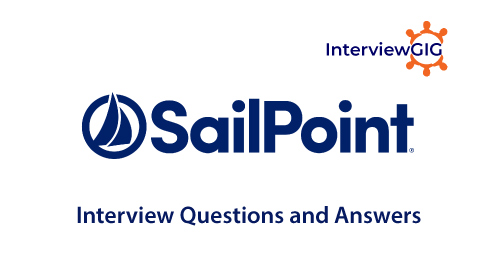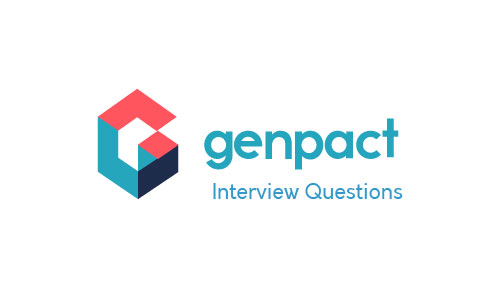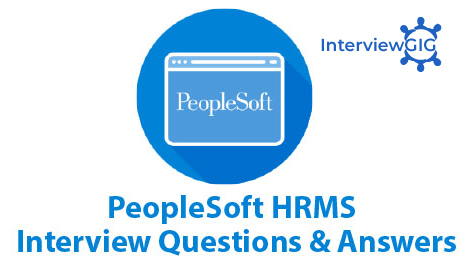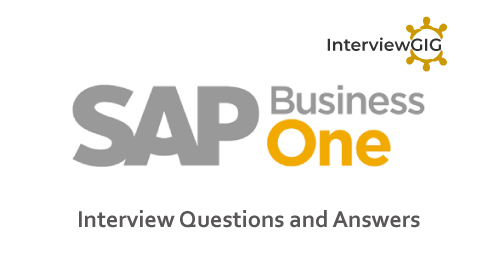Ready to launch or elevate your career in the dynamic Business Process Outsourcing (BPO) sector? Companies like TCS, Genpact, Accenture, Wipro, Tech Mahindra, and Infosys are constantly seeking talented individuals to join their ranks. But landing that coveted role requires more than just enthusiasm; it demands a strong interview performance. This blog post is your strategic advantage, offering a curated collection of BPO interview questions tailored for both freshers and experienced professionals.
We go beyond basic queries, diving into real-time situational scenarios you might encounter in interviews with these leading organizations. Prepare to showcase your problem-solving skills and your understanding of the BPO world!
Question: Tell me something about yourself?
Tip: Focus on relevant skills and experiences. Keep it concise and engaging. Don’t recite your entire resume.
Sample Answer:
“Hello, my name is [Your Name], and I come from [Your City]. I have completed my B.Tech in [Your Stream] and have a keen interest in communication and customer service. I have strong problem-solving skills and enjoy interacting with people, which motivated me to pursue a role in the BPO industry. I am confident in handling customer queries efficiently and ensuring a great experience for clients.”
Question: You have a B.Tech degree related to the IT industry. Why did you choose to work in the BPO industry?
Tip: Show a logical reason for the shift, emphasizing skills and interest. Don’t make it sound like BPO is a backup plan.
Sample Answer:
“While my B.Tech degree provided me with a strong technical foundation, I realized that I have a natural ability for communication, problem-solving, and customer interaction. The BPO industry offers a dynamic work environment where I can utilize these skills effectively. Additionally, working in a global support role allows me to gain international exposure and enhance my professional growth.”
Question: Since most of our calls are with US-based clients or other countries, how confident are you in handling conversations with them?
Tip: Express confidence and mention any experience in handling global clients.
Sample Answer:
“I am confident in handling conversations with US-based and international clients. I have trained myself to understand different accents and cultural communication styles. Additionally, I focus on active listening and clear articulation to ensure effective conversations. If needed, I am open to further accent training to improve my fluency.”
Question: Do you have experience communicating with international customers, particularly from the US or India (other states)? How do you ensure clarity and professionalism?
Tip: Mention any relevant experience and your approach to maintaining professionalism.
Sample Answer:
“Yes, I have experience communicating with international customers during my internship at a tech support company. I ensured clarity by actively listening to their concerns and asking clarifying questions when needed. I always maintained a professional tone and used simple language to avoid misunderstandings. Additionally, I made sure to follow up with written summaries of our conversations to confirm that we were on the same page.”
Question: How would you rate your communication skills and proficiency in English on a scale of 1 to 10?
Tip: Be honest, but show confidence and willingness to improve.
Sample Answer:
“I would rate my communication skills at 8 out of 10. I am fluent in English and comfortable handling conversations with international clients. I continuously work on improving my vocabulary, pronunciation, and active listening skills through practice and training.”
Question: What do you understand about BPO, and why do you want to join Genpact?
Tip: Define BPO clearly and express your interest in Genpact specifically, mentioning its reputation or values.
Sample Answer:
“BPO, or Business Process Outsourcing, involves contracting third-party service providers to handle specific business functions, such as customer service, technical support, and data entry. I want to join Genpact because it is a leader in the BPO industry, known for its commitment to innovation and excellence. I admire Genpact’s focus on transforming business processes through technology and data analytics, and I believe that my skills and passion for customer service align well with the company’s mission.”
Question: What is the difference between BPO and a call center?
Tip: Keep it simple and focus on key differences.
Sample Answer:
“A BPO handles a wide range of outsourced business operations, including finance, HR, IT support, and customer service, while a call center primarily focuses on handling customer calls, including inbound (customer queries) and outbound (sales, feedback) interactions. BPO is broader in scope, whereas call centers are a specific function within BPO.”
Question: Why is customer satisfaction important in BPOs?
Tip: Emphasize the impact of customer satisfaction on business success and reputation.
Sample Answer:
“Customer satisfaction is crucial in BPOs because it directly affects client retention and brand loyalty. Satisfied customers are more likely to return and recommend the service to others, which can lead to increased business for the company. Additionally, positive customer experiences enhance the reputation of the BPO provider, making it easier to attract new clients. In a competitive market, delivering exceptional customer service is essential for long-term success.”
Question: How would you handle a customer who speaks a regional language you don’t understand?
Tip: Focus on problem-solving and adaptability.
Sample Answer:
“If I encounter a customer speaking a regional language I don’t understand, I would first stay calm and listen carefully for any familiar words or phrases. I would politely ask if they can speak in English or Hindi, or I would use simple words and gestures to communicate. If needed, I would seek help from a colleague who understands the language or use translation tools to assist the customer effectively.”
Question: How do inbound and outbound calls differ in a customer support role?
Tip: Clearly explain both types of calls with practical examples.
Sample Answer:
“Inbound calls are when customers reach out to the company for support, such as resolving issues, tracking orders, or seeking information. These calls require strong problem-solving and communication skills. Outbound calls, on the other hand, are made by the company to customers for sales, surveys, follow-ups, or reminders. These require persuasion skills and customer engagement strategies. In customer support, handling both effectively ensures high customer satisfaction and business growth.”
Question: What strategies do you use to meet or exceed key performance indicators (KPIs)?
Tip: Mention specific strategies that improve performance and efficiency.
Sample Answer:
“To meet or exceed KPIs, I focus on active listening to resolve customer queries efficiently, maintain a positive and professional tone, and ensure first-call resolution to reduce repeat calls. I also manage my time effectively to handle high call volumes while maintaining quality service. Regular self-assessment, customer feedback analysis, and continuous skill improvement help me stay ahead of targets.”
Question: What are your strengths and weaknesses?
Tip: Be honest and self-aware, highlighting strengths relevant to the role and discussing weaknesses with a focus on improvement.
Sample Answer:
“My greatest strength is my ability to communicate effectively with customers, which helps me build rapport and resolve issues efficiently. I am also highly organized, allowing me to manage multiple tasks and prioritize effectively. As for my weakness, I tend to be a perfectionist, which sometimes leads me to spend more time on a task than necessary. However, I am actively working on this by setting time limits for myself and focusing on completing tasks efficiently while maintaining quality.”
Question: Where do you see yourself in five years?
Tip: Share your career aspirations while aligning them with the company’s growth and opportunities.
Sample Answer:
“In five years, I see myself advancing within the BPO industry, potentially taking on a leadership role where I can mentor and train new team members. I am eager to develop my skills further and contribute to the success of the company. I believe that Genpact offers excellent opportunities for growth, and I am excited about the possibility of being part of a team that drives innovation and customer satisfaction.”
Question: What is offshoring, and how does it benefit a BPO company like Genpact?
Tip: Define offshoring and explain its advantages in simple terms.
Sample Answer:
“Offshoring is when a company moves its business processes to another country to reduce costs, access skilled talent, and improve efficiency. For a BPO company like Genpact, offshoring helps provide high-quality services at a lower operational cost, access a global workforce, and ensure 24/7 customer support by leveraging different time zones. It also allows companies to focus on core business functions while outsourcing non-core tasks to experts.”
Question: How do you handle workplace conflicts with colleagues or managers?
Tip: Focus on professionalism, communication, and problem-solving.
Sample Answer:
“I believe in resolving conflicts professionally by maintaining open communication and understanding different perspectives. If a conflict arises, I calmly discuss the issue with the person involved and try to find a mutually beneficial solution. If needed, I seek guidance from my manager to ensure workplace harmony. My goal is always to maintain a positive and collaborative work environment.”
Question: How proficient are you with computers and commonly used software tools?
Tip: Highlight your familiarity with essential tools used in BPO roles.
Sample Answer:
“I am highly proficient in using computers and commonly used software tools. I have experience with MS Office (Excel, Word, PowerPoint, Outlook), CRM software, email management tools, and basic troubleshooting techniques. Additionally, I can quickly adapt to new tools and technologies as required in the job.”
Question: Are you comfortable handling customer interactions over the phone?
Tip: Express your confidence and experience in phone-based customer service.
Sample Answer:
“Yes, I am very comfortable handling customer interactions over the phone. I have strong communication skills and can actively listen to customers to understand their concerns and provide effective solutions. I also maintain a calm and professional tone to ensure a positive customer experience.”
Question: What are the major types of outsourcing, and how does Genpact or any other company utilize them?
Tip: Briefly explain outsourcing types with real-world applications.
Sample Answer:
_”The major types of outsourcing include:
- Onshore Outsourcing – Outsourcing within the same country.
- Nearshore Outsourcing – Outsourcing to a neighboring country.
- Offshore Outsourcing – Outsourcing to a distant country to reduce costs and access global talent.
- Process-Specific Outsourcing – Outsourcing specific tasks like IT support, HR, or finance.
Genpact utilizes offshore and process-specific outsourcing to provide cost-effective, high-quality services to global clients. By outsourcing non-core business processes, companies can focus on strategic growth while ensuring expert handling of outsourced tasks.”_
Question: Are you open to relocation if required by the company?
Tip: Be honest about your willingness to relocate and express your commitment to the company.
Sample Answer:
“Yes, I am open to relocation if required by the company. I understand that career growth sometimes requires flexibility, and I am willing to move if it aligns with my professional development and company needs. However, I would appreciate knowing the location details and support provided by the company for relocation.”
Question: Why did you leave your previous job?
Tip: Be honest but diplomatic. Focus on positive reasons for your departure, such as seeking new challenges or opportunities for growth.
Sample Answer:
“I left my previous job to seek new challenges and opportunities for professional growth. While I enjoyed my time there and learned a lot, I felt that I had reached a plateau in my role. I am eager to take on new responsibilities and contribute to a dynamic organization like Genpact, where I can leverage my skills and experience to make a meaningful impact.”
Question: How do you handle stress and pressure?
Tip: Show resilience and problem-solving skills.
Sample Answer:
“I handle stress by staying organized, prioritizing my tasks, and maintaining a positive mindset. When faced with high-pressure situations, I break down tasks into manageable steps and focus on finding solutions rather than dwelling on problems. Deep breathing and short breaks also help me stay calm and focused during challenging situations.”
Question: How would you handle confidential client data in a BPO setting?
Tip: Emphasize your understanding of data privacy and security protocols.
Sample Answer:
“I understand the importance of handling confidential client data with the utmost care. In a BPO setting, I would adhere to all company policies and industry regulations regarding data privacy, such as GDPR or HIPAA, depending on the context. I would ensure that sensitive information is only accessed by authorized personnel and that it is stored securely.
Question: Are you comfortable working in different shifts, including night shifts?
Tip: Show flexibility while stating any preferences.
Sample Answer:
“Yes, I am comfortable working in different shifts, including night shifts. I understand that the BPO industry operates 24/7, and I am prepared to adapt to the required schedule. However, if there is a preference option, I would be open to discussing it based on business needs.”
Question: Are you comfortable signing a service agreement (bond)?
Tip: Understand the bond terms before committing.
Sample Answer:
“Yes, I am comfortable signing a service agreement, provided I understand the terms and conditions. I am committed to contributing to the company’s success and believe in long-term career growth with Genpact.”
Question: Can you tell us about a time when you received positive feedback from clients or customers?
Tip: Share a specific instance that highlights your customer service skills.
Sample Answer:
“In my previous role, I assisted a frustrated customer who was facing repeated issues with a product. I patiently listened, empathized with their concern, and provided a quick resolution. The customer was so satisfied that they left a positive review and personally thanked me for my support. My manager also appreciated my effort in turning a difficult situation into a positive customer experience.”
Question: What is your salary expectation, and are you comfortable with Genpact’s compensation structure?
Tip: Be flexible but realistic. Do research on Genpact’s salary standards before answering.
Sample Answer:
“I am open to discussing salary based on the company’s compensation structure and industry standards. My expectation is aligned with my experience and the role’s responsibilities. However, I am more focused on career growth, learning opportunities, and long-term stability at Genpact.”
Question: If a customer is frustrated and yelling at you, how would you handle the situation?
Tip: Stay calm, listen actively, and empathize with the customer’s concerns.
Sample Answer: “I understand the customer’s frustration. I would listen patiently without interrupting unless absolutely necessary to regain control of the conversation. I’d acknowledge their feelings by saying something like, ‘I hear you’re upset, and I want to help.’ My priority would be to de-escalate the situation by speaking calmly and reassuringly. Once they’ve calmed down, I’d focus on understanding the root cause of their anger and work towards a solution.”
Question: Suppose a customer does not understand your accent or communication style. How would you handle it?
Tip: Be patient, clarify, and use alternative communication methods if needed.
Sample Answer: “If a customer has difficulty understanding my accent, I would slow down my speech, enunciate clearly, and use simple language. I might also ask open-ended questions to confirm their understanding and encourage them to ask for clarification if needed. If the issue persists, I would offer alternative communication methods, such as email or chat, to ensure the customer receives the assistance they need.”
Question: Imagine a scenario where a customer is unhappy with a product or service. How would you resolve their concern?
Tip: Empathize with the customer and offer practical solutions.
Sample Answer: “In a situation where a customer is unhappy with a product or service, I would first listen carefully to their concerns and validate their feelings. I would ask specific questions to understand the issue fully. Once I have all the necessary information, I would offer a solution, whether it’s a replacement, refund, or another form of compensation, depending on the company’s policies. I would ensure to follow up with the customer to confirm that the resolution met their expectations and to restore their confidence in our brand.”
Question: You receive a call from a customer who is struggling to explain their issue. How will you assist them effectively?
Tip: Emphasize your patience and active listening skills.
Sample Answer:
“If a customer is struggling to explain their issue, I would approach the situation with patience and empathy. I would encourage them to take their time and reassure them that I’m here to help. I would ask guiding questions to help them articulate their problem more clearly, such as, ‘Can you describe what happened just before the issue occurred?’ By breaking down the problem into smaller parts, I can assist them more effectively and ensure that I understand their concerns fully.”
Question: A client requests information that you are not authorized to share. How would you respond?
Tip: Politely decline and explain the importance of confidentiality.
Sample Answer: “I would inform the client that I am unable to provide the requested information due to confidentiality policies. I might say, ‘I apologize, but I am not authorized to share that information as it is confidential. Is there something else I can assist you with?’ If appropriate, I would offer to connect them with someone who has the necessary authorization to address their request.”
Scenario: Your team is experiencing a high call volume, and a customer has been waiting for a long time. How would you apologize and manage the situation?
Tip: Emphasize empathy and proactive communication.
Sample Answer:
“I would start by sincerely apologizing to the customer for the wait, acknowledging their frustration. I would say something like, ‘I apologize for the delay and appreciate your patience during this busy time.’ I would then reassure them that I am here to help and ask how I can assist them today. If the wait time is expected to be longer, I would offer to take their contact information and have a supervisor call them back as soon as possible, ensuring they feel valued and heard.”
Question: If a customer keeps interrupting you while you explain a solution, how would you handle it?
Tip: Practice active listening, show empathy, and gently guide the conversation.
Sample Answer:
“I would allow the customer to express their concerns fully without interruption, demonstrating active listening and empathy. Once they have finished speaking, I would acknowledge their points and say, ‘I understand your concerns. May I explain how we can resolve this issue?’ This approach shows respect for their input and helps in guiding the conversation towards a solution.”
Question: You are handling a technical issue, but you don’t know the solution immediately. What will you do?
Tip: Be honest about the situation, utilize available resources, and keep the customer informed.
Sample Answer:
“If I encounter a technical issue that I am not immediately familiar with, I would inform the customer that I need to consult with a specialist or refer to additional resources to provide an accurate solution. I might say, ‘I want to ensure I provide you with the correct information. May I place you on a brief hold while I consult with our technical team?’ If the issue requires more time, I would offer to follow up with them once I have the necessary information.”
Question: A customer is not satisfied with the solution you provided and insists on speaking to a manager. How would you handle the request?
Tip: Show your understanding of the customer’s needs while maintaining professionalism.
Sample Answer:
“If a customer is not satisfied with the solution I provided and requests to speak to a manager, I would first acknowledge their feelings and validate their concerns. I would say, ‘I understand that you’re not satisfied with the solution, and I want to ensure you receive the assistance you need.’ I would then offer to escalate the call to a manager, assuring them that their concerns will be addressed. Before transferring, I would briefly summarize the issue to the manager to ensure a smooth handoff and let the customer know that I am here to support them throughout the process.”
Succeeding in a BPO interview requires more than memorizing answers—it demands showcasing your communication skills, adaptability, and ability to handle real-world customer situations effectively. By preparing responses to both general and situational questions, and illustrating your answers with relevant examples, you demonstrate to employers your readiness to contribute positively in a fast-paced environment. Whether you are a fresher eager to start your career or an experienced candidate aiming to advance, thorough preparation will help you stand out and confidently navigate the interview process with leading BPO companies.





